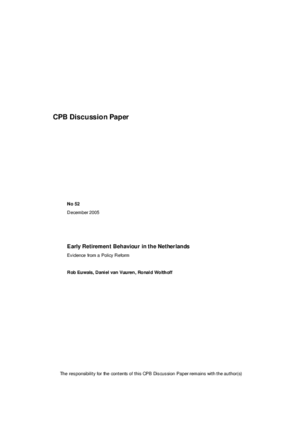Early retirement behaviour in the Netherlands; evidence from a policy reform
Omzetting VUT naar prepensioen zorgt voor langer doorwerken
We are sorry, unfortunately there is no English translation of this page.
Contacts

In the early 1990s, the Dutch social partners agreed upon transforming the generous and actuarially unfair PAYG early retirement schemes into less generous and actuarially fair capital funded schemes.
The starting dates of the transitional arrangements varied by industry sector. In this study, we exploit the variation in starting dates to estimate the causal impact of the policy reform on early retirement behaviour.
We use a large administrative dataset, the Dutch Income Panel 1989-2000, to estimate hazard rate models for early retirement. We conclude that the policy reform induced workers to postpone early retirement. Model simulations show that the first phase of the transition has already led to an average retirement postponement by 4 months in the group of elderly workers investigated. It will become about 9 months once the transition is fully completed.
